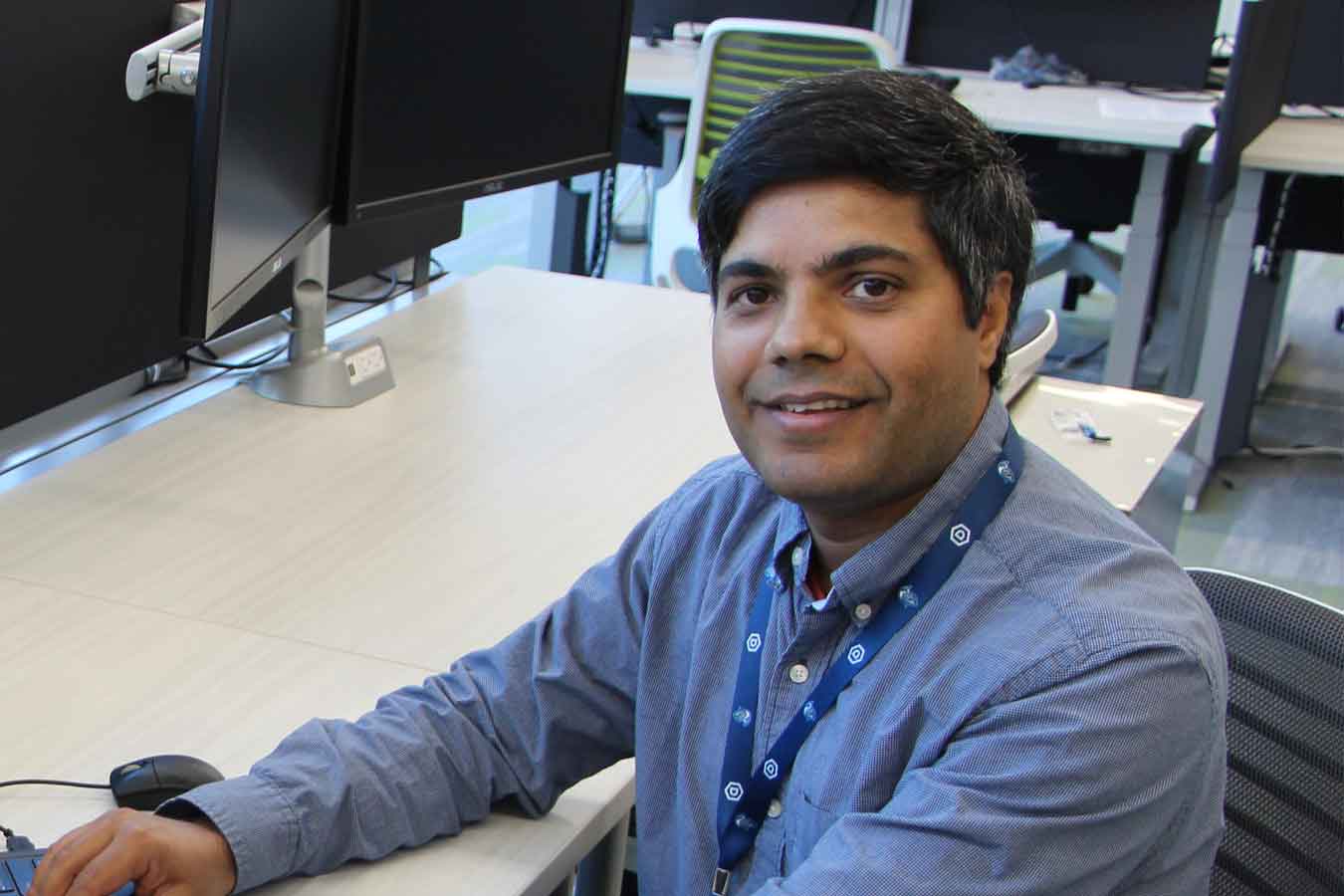DSU to study electric vehicle charging
July 29, 2021
Competitive Research Grant to explore new technologies

“It’s a very exciting time to be a technology researcher,” said Dr. Bhaskar Rimal, because there is always something new to study or develop.
Rimal, an assistant professor of Computer and Cyber Sciences at Dakota State University, has received a $90,000 Competitive Research Grant (CRG) from the South Dakota Board of Regents to study new technology related to electric vehicles (EVs). Work on the one-year grant begins in August.
This project will help solve two problems with EVs -- charging management and communications. Rimal’s proposal considers how “smart grid communications and vehicular networks can interplay on a unified network communication platform and impact each other,” he said.
Bringing in intelligence through a cloud computing-based secure communication platform and a resource management framework of EVs in a network of charging stations will help encourage the use of EVs. This, in turn, will “reduce carbon dioxide, improve air quality, and protect Mother Earth for future generations,” Rimal said.
According to the Environmental Protection Agency, in 2015 the transportation sector held 27% of total US greenhouse gas emissions. This statistic indicates the need for the widespread adoption of intelligent transport systems, he said, which can reduce carbon emissions and improve air quality, with impacts on both quality of life and healthcare costs.
This grant will contribute scholarly research in the field at the national level, support the agenda of potential external funding agencies, produce significant new research capacity for researchers, and generate tech transfer and commercialization opportunities for South Dakota and Dakota State, Rimal said.
It will also create opportunities for graduate and undergraduate student researchers working on the project.
“It is very advantageous for students to see the latest technology,” Rimal said, as “students need these kinds of skills and knowledge,” to keep pace with the rapidly changing fields of cybersecurity, power, communications, and networking. Experience with the real hardware and software will look good on a résumé, he shared. This will be particularly advantageous for the students if their goal is to work in the industry at companies like Tesla, GM, or Apple.
Rimal hopes that after the grant is completed, he will be able to extend the progress in the future, with a bigger-scale research project with the National Science Foundation.
“It’s a good time to do these very exciting things at Dakota State because DSU is leading in cybersecurity,” Rimal said, with very unique programs and new courses with cyber operations and cyber defense.
